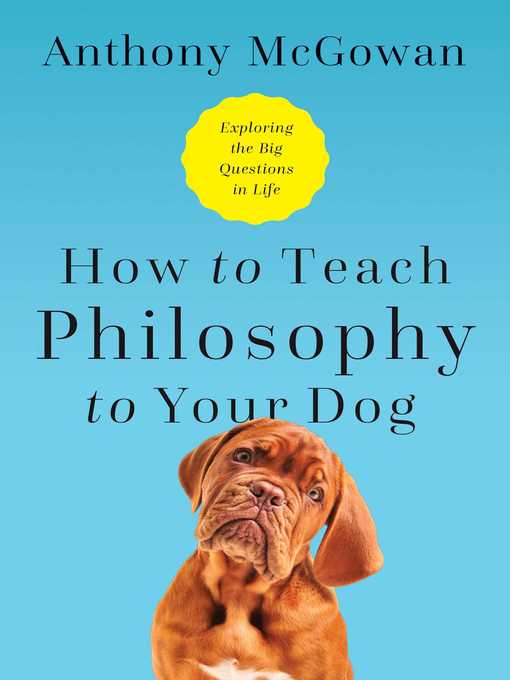
How to Teach Philosophy to Your Dog
Exploring the Big Questions in Life
کتاب های مرتبط
- اطلاعات
- نقد و بررسی
- دیدگاه کاربران
نقد و بررسی

November 1, 2019
A Londoner and his canine companion consider thorny philosophical questions on their daily walks. Accompanied by his beloved "scruffy Maltese terrier," McGowan (The Art of Failing: Notes From the Underdog, 2017, etc.) muses on philosophy and philosophers as they set out on jaunts in and around London's verdant landscapes. Sauntering across Hampstead Heath, Primrose Hill, and along the Thames from Richmond to Strawberry Hill, the author responds to Monty's "earnest, quizzical look" by explaining complex ideas--epistemology, nominalism, empiricism, free will, and many more--in clear, accessible terms and with concrete illustrations to which Monty can relate. Thinking about Kant's rule-based ethics, for example, the author reminds Monty of the time he stole a cheesecake that lay temptingly on a coffee table. Kant would say, "before you steal the cheesecake, ask: would it be right to universalize that action?" If not, don't do it. Unraveling difficult concepts of structuralist linguistics, McGowan explains that "the material part is called the signifier, and the mental component is the signified," which combine to form the sign. "The word DOG is a sign made up of the letters D-O-G, and the idea of a dog." When McGowan gives Monty a sausage, "the sausage is the signifier, the signified is 'I love you.'" Socrates and Aristotle, Francis Bacon and René Descartes, Leibniz, Hume, Locke, John Stuart Mill, Wittgenstein, and Spinoza are among other philosophers featured in McGowan's discussions, with cameo appearances by "mean, miserable, arrogant" Arthur Schopenhauer; the Franciscan monk William of Ockham; utilitarian Jeremy Bentham; and Thomas Hobbes, who "famously saw life in a state of nature as being a war of all against all." Organized thematically, the chapters begin with a short recap of what the pair discussed on their last walk, which leads into topics that consider how we know right from wrong, how best to live in a community, how we know what we know, and how to live a good life. A charming, informative, unique introduction to Western philosophy.
COPYRIGHT(2019) Kirkus Reviews, ALL RIGHTS RESERVED.

December 2, 2019
McGowan (The Art of Failing), a lecturer on philosophy and creative writing, playfully explores philosophy in this amusing collection of imaginary dialogues conducted with his Maltese terrier, Monty. During the pair’s walks through north London, Monty (at least in the brief responses McGowan gives to him) provides a foil for the author’s ruminations on various concepts about ethics, free will, knowledge, and the meaning of life. While taking Monty to a familiar spot on the bank of the Thames, McGowan is moved to consider pre-Socratic thinker Heraclitus, who coined the famous adage about the “impossibility of stepping into the same river” twice. McGowan also considers how philosophy and life reflect upon each other. Monty is an aging dog with a bad hip, so conversations on the nature of existence—such as what Plato’s theory of forms has to say about his essential nature as a dog—and death suit his stage of life. McGowan gives their “conversation” the sense of an easy give-and-take, with agreeably down-to-earth lines for Monty such as “Spinoza sounds quite cool” or “So determinism loses, hurrah!” Readers who have never roamed the paths of philosophy before, or who could use a return trip, will appreciate this enjoyable tour from a friendly guide and his loyal companion. (Feb.)Correction: An earlier version of this review misspelled the author's last name.

























دیدگاه کاربران